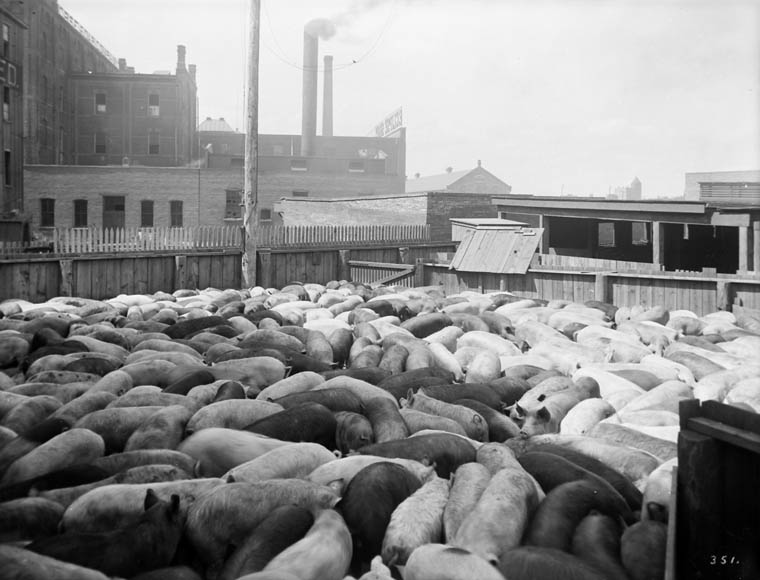
04/06/2019
Over 100 years ago Sinclair Lewis wrote “The Jungle“. While the book’s main focus was an account of the grinding poverty faced by immigrants, it painted a compelling picture of conditions in America’s meatpacking industry. It wasn’t pretty.
Lewis’s book struck a nerve that prompted US President Theodore Roosevelt to appoint a commission to study the meatpacking industry. Roosevelt dispatched labor commissioner Charles P. Neill and social worker James Bronson Reynolds to make surprise inspections of meatpacking plants. Their report laid the groundwork for the Federal Meat Inspection Act of 1906. The Act included specific Congressional findings, which are worth quoting:
Meat and meat food products are an important source of the Nation’s total supply of food. They are consumed throughout the Nation and the major portion thereof moves in interstate or foreign commerce. It is essential in the public interest that the health and welfare of consumers be protected by assuring that meat and meat food products distributed to them are wholesome, not adulterated, and properly marked, labeled, and packaged. Unwholesome, adulterated, or misbranded meat or meat food products impair the effective regulation of meat and meat food products in interstate or foreign commerce, are injurious to the public welfare, destroy markets for wholesome, not adulterated, and properly labeled and packaged meat and meat food products, and result in sundry losses to livestock producers and processors of meat and meat food products, as well as injury to consumers.
21 U.S.C. §602
Fast forward to the present, and we’re on verge of a major change in the inspection protocols for meat production plants. The LA Times reports the administration is changing the rules to shift power and responsibility for food safety inspections in hog plants to the pork industry. These changes are expected to take effect as early as May 2019, and would result in cutting the number of federal inspectors at hog plants by about 40% and replacing them with employees of the companies. This is a classic case of putting the fox in charge of guarding the hen house. What could go wrong?
The new rules would result in “sharing” responsibility for identifying diseased and contaminated pork with company employees. Employee training would be at the discretion of the company. Compounding these issues, the rules would also remove limits on the speed of animal slaughter and processing lines. Again, what could go wrong?
While the large-scale animal agriculture industry may be celebrating this round of deregulation, the popping of champagne corks may be short-lived. Independent monitoring and inspection of our food supply and processing creates a degree of confidence on the part of consumers that will erode over time. That loss of confidence will increase skepticism about the quality and safety of meat products, leading to an erosion of market share and increased pressure from alternatives such as foods made with plant-based proteins.
Animal agriculture is already facing pressure due to its impact on our climate and watersheds. While deregulation may put more money in the hands of shareholders in the short term, the industry is undermining its own long-term sustainability. That’s terribly short-sighted, and the next time an author such as Sinclair Lewis writes about conditions in the industry in the wake of deregulation, it might not go so well for them.